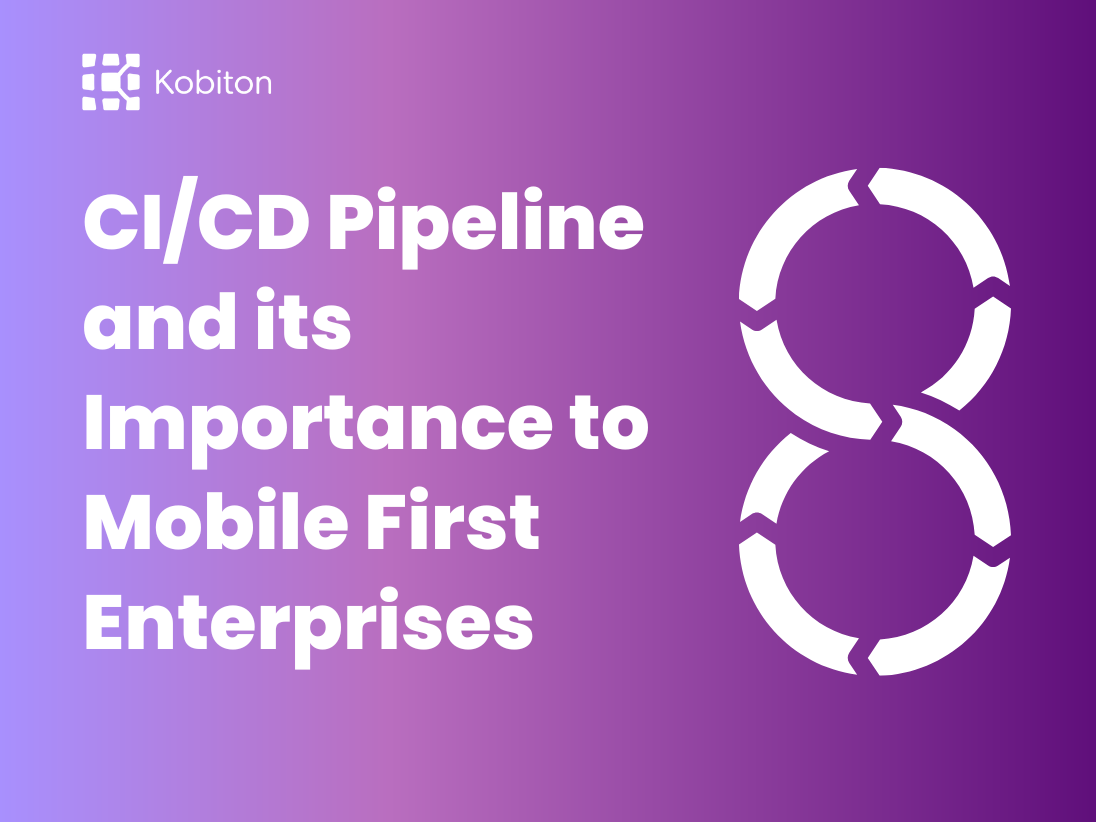
CI/CD Pipeline and its Importance to Mobile First Enterprises

Cara Suarez
Introduction
Today, we are going to talk about Mobile Device Management (MDM) solutions and how they come into play within the world of mobile testing. Here at Kobiton, we don’t claim to be experts, but experimentalists, to see how we can best use MDMs ourselves and best serve our suite of customers that use MDM solutions. This blog will stand as our baseline for MDMs and as we continue to invest in our research for various, specific MDM solutions, we will release additional blogs in this MDM series.
What is MDM?
MDM stands for Mobile Device Management, and if you are reading this, you likely already know that.
With MDM, enterprises can remotely control how their organization’s mobile devices, including mobile phones, tablets, and laptops, are used. Plus, most MDMs have additional capabilities that make mobile app testing more successful – including providing secure access to in-house applications.
Why do customers use MDM Solutions?
In the mobile testing industry, you could say we are experts, and we understand why so many of our customers use MDMs. But why?
MDMs are known to increase efficiency and flexibility because they allow enterprises to test their applications on a larger scale – especially with a myriad of device models and operating systems.
MDMs are also known to increase productivity, reduce costs, and improve security. The flexibility of a MDM solution added to your mobile application testing workflow provides indisputable advantages no matter what the size of your testing team.
Here are a few ways we will continue to explore MDMs as we walk through the rest of this blog, and the rest of our MDM blogs in the future.
MDMs provide:
How does Kobiton support MDM Solutions?
When using a Mobile Device Management solution (MDM) it can be kind of tricky, but here at Kobiton, we want to make it as smooth as possible. The Kobiton software acts like a MDM when physical devices are being controlled. MDMs tend to restrict access, restrict changes to the device, and lock key features that customers need to run a test.
When a MDM solution blocks access to parts of the phone the Kobiton App loses connectivity. At Kobiton, we have a MDM solution for iOS devices currently, and we are looking to add an additional MDM solution for Android devices soon.
Any MDM may cause a disruption in the Kobiton app service, but we have known features that will work within a MDM ecosystem. Still, as to be expected, features will not, as we can troubleshoot them.
How does Kobiton use MDM solutions?
For now, Kobiton has launched an internal campaign to provide best practices for MDM usage and is continuously improving on our MDM configurations and support. Currently, Kobiton uses a MDM to prevent device lockouts and wifi changes. This does not interfere with the Kobiton app running on a device because these two functions are not handled by Kobiton, but are changed by each customer.
Why is this beneficial?
When your workspace tools work together, you and your team can work smarter, not harder. Supporting MDM platforms is just one way Kobiton is proud to enable teams of mobile app testers to do what they do best, provide excellent customer experiences.
Get Started Today
Find out more about how Kobiton can support your mobile device management processes and help your organization increase flexibility and productivity within your testing teams at Kobiton.com.